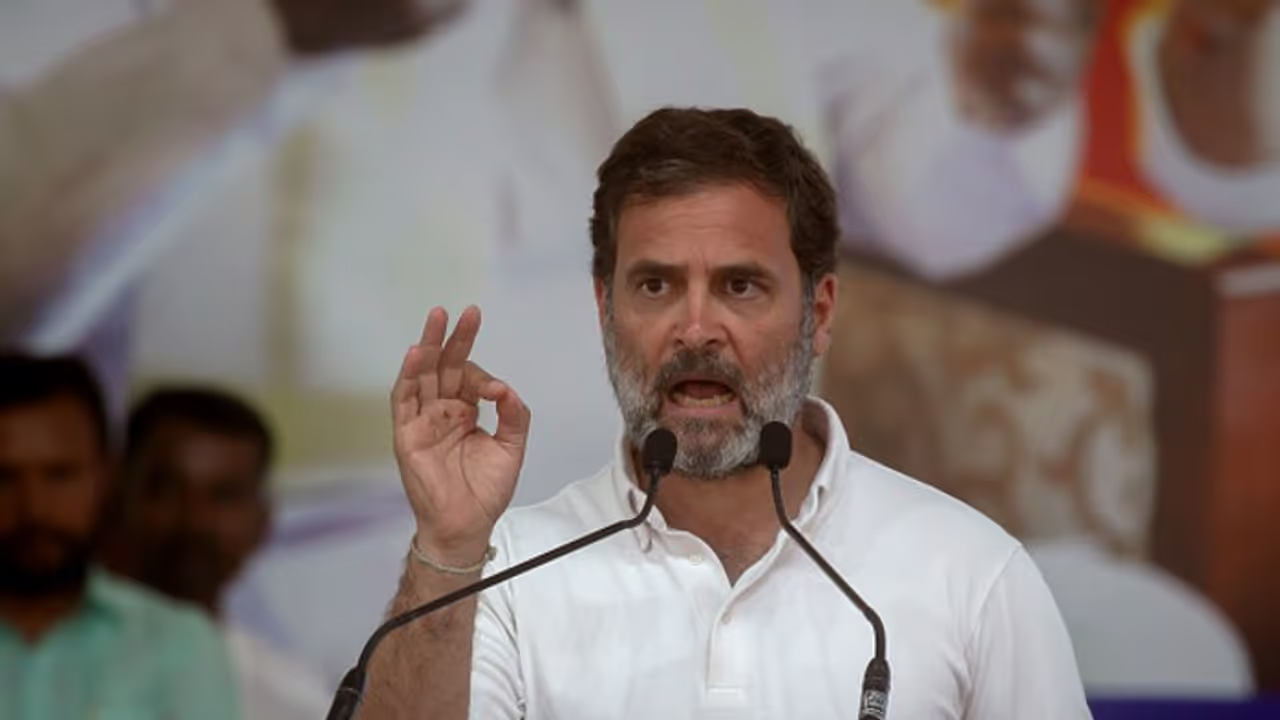The Congress party faced significant setbacks in the Haryana assembly elections, with insiders attributing the defeat to over-confidence, factionalism, and excessive reliance on a single community.
The Congress party faced significant setbacks in the Haryana assembly elections, with insiders attributing the defeat to over-confidence, factionalism, and excessive reliance on a single community. After being out of power for a decade, the party viewed Haryana as a promising opportunity, especially with a decade of anti-incumbency against the ruling party.

However, the anticipated comeback did not materialize, marking a surprising defeat for the Congress, which had hoped to leverage its Lok Sabha election momentum against the BJP.
Despite the disappointment in Haryana, the party found a glimmer of hope with the Congress-National Conference alliance's victory in Jammu and Kashmir, though the Congress only managed to secure six seats out of the more than 30 it contested, while the National Conference won 42.
In Haryana, despite the Congress securing over 39 percent of the vote share and trailing the BJP by less than one percent, the party was unable to unseat the BJP, which will form a record third term in the state.
In contrast, the Congress had achieved a simple majority in Himachal Pradesh with a vote share just one percent higher than the BJP in 2022.
As the election results solidified, it became evident that the Congress faced significant challenges in Haryana, primarily due to internal conflicts, the over-confidence of its leadership, and an excessive reliance on a single community. The party's strategy, heavily focused on Jat leader and former chief minister Bhupinder Singh Hooda, alienated other influential figures, including former union minister and Dalit leader Kumari Selja. She publicly expressed her dissatisfaction and called for serious introspection within the party on Tuesday.
As Hooda and Selja both laid claim to the chief minister's position ahead of the polls, they seemingly overlooked the fact that the party had yet to secure a victory in Haryana. Party leaders noted that this rivalry created confusion among voters, especially with the separate public outreach efforts launched just before the state election announcement.
While Hooda and his son, Deepender, initiated the "Ghar Ghar Congress" yatra, Selja, along with Randeep Surjewala and Kiran Choudhary, embarked on their own campaign, the "Congress Sandesh" yatra.
"The factions were always so in-the-face. The damage was exacerbated when Kumari Selja sat at home deciding to skip the election campaign. She had to be placated but clearly she remained upset and made it known," a Congress source was quoted as saying in a PTI report.
Out of 90 tickets, 72 were distributed based on Hooda's recommendations, with sources indicating that Selja struggled to secure tickets for candidates in her own stronghold of Sirsa.
In addition to internal factionalism, the party's over-confidence also played a significant role in its downfall, as leaders projected an air of victory and underestimated the BJP's decade-long anti-incumbency.
The situation was further complicated by the presence of over 2,500 ticket aspirants, which created chaos for the Congress. Many rebels entered the fray, with around ten of them influencing the election outcome.
In contrast, while the BJP faced its own issues with dissenters, it managed to handle the rebellion much more effectively.
Even in the battle of narratives, the Congress's reliance on the "jawan-kisan-pehalwan" storyline against the BJP did not translate into votes, as evidenced by the election results, which saw the party lose many Jat-dominated areas.
While the Congress leaned on its support from the Jat community, the BJP effectively employed social engineering strategies to counter this, and this approach proved successful.
Although the Congress's promises had resonated in other states like Himachal Pradesh and Karnataka, the situation in Haryana was different. The party pledged to provide jobs for unemployed youths and Agniveers while ensuring women's security, but these commitments failed to gain traction.
Rahul Gandhi's last-minute attempt to bring Ashok Tanwar, a known turncoat, into the fold to project Dalit solidarity also seems to have backfired, with many viewing it as an effort to undermine the already discontented Selja.
Gandhi's "save the Constitution" campaign did not gain traction in Haryana, as the BJP capitalized on his comments made in the US, where he suggested that India could consider ending reservations only when true equality is achieved.
The Congress's defeat in Haryana has dampened the party's spirits ahead of the upcoming assembly polls in Maharashtra and Jharkhand, where allies are asserting their influence. This outcome serves as a wake-up call for the Congress to get its house in order in these two states and in Delhi, where elections are on the horizon.
The party's bargaining power has diminished once again, as allies question why the Congress failed to leverage a decade of BJP anti-incumbency and did not pursue seat-sharing agreements with partners in the INDIA bloc.
While Kumari Selja has called for introspection and accountability, parties like Shiv Sena (UBT), CPI, and the Aam Aadmi Party emphasized the need for the Congress to learn from this loss and collaborate more effectively with its partners in future elections.
